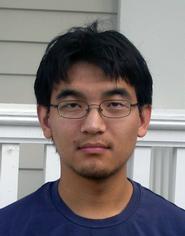
Experience as a Green Party member in Washington State led Young Han '06 to apply for an Emerson grant to study electoral reform. An economics major, Han chose the project based on his personal interest, rather than academic goals. "I realized how skewed the system was against the third party," said Han. His project, titled "Single-transferable Vote in the Rhetoric of Electoral Reform," brought him to Vancouver, British Columbia, where electoral reform is at the forefront of public issues. Han's project was to "study how electoral reform advocates have framed the issue to make it accessible to the general public," he explained.
Electoral reform refers to a change in the system by which the government allocates votes and translates the votes into representation. Currently, members of the United States Congress are elected by single member districts. The election of a member in one district has no effect on any other district. For example, if a third party gets 5 percent of votes in each district, the party collectively would have received 5 percent of votes in the country; however, the party would still not be represented in Congress. "It leaves a segment of the populous unrepresented," said Han.
Several countries are discussing electoral reform to allow for proportional representation; if reform is successful, a party that receives 5 percent of a countries vote, they would get 5 percent of the seats in the governing body. Electoral reform would require a public vote. Han's project focused on how governments are going about helping the general public understand electoral reform. "It is such a little understood issue," said Han, "and it is important that people understand it so they can cast an educated vote."
Han chose to study in Vancouver because it is the largest city in British Columbia, the Canadian province that is holding a vote on the issue of electoral reform. He communicated several times each week with his project advisor, Visiting Professor of Communications John Adams. The Vancouver Citizens Assembly for Electoral Reform "chose a truly historic method" to go about the vote, said Han. They chose two citizens from each district to present what they believed would be the ideal electoral system to the people, and then the people would choose. Han followed the campaigns for and against electoral reform-- in Vancouver the proposed reform process was single-transferable vote—and how the people responded. A single-transferable vote system would provide proportional representation while ensuring that votes are explicitly for candidates rather than party lists. Voters may vote for a first-choice and second-choice candidate, and if their first-choice is either elected or eliminated, their second-choice vote is counted. "[Single-transferable vote] did not pass by 2 percent," said Han. It needed 60 percent to pass. "But the fact that it got 58 percent [of votes] means a lot."
Han concluded that the issue of electoral reform became much more appealing to the public when people understood it. "It is very difficult to present," he said "[advocates] need to base their campaign on emotional appeal until there is a better understanding."
-- by Laura Trubiano '07
Electoral reform refers to a change in the system by which the government allocates votes and translates the votes into representation. Currently, members of the United States Congress are elected by single member districts. The election of a member in one district has no effect on any other district. For example, if a third party gets 5 percent of votes in each district, the party collectively would have received 5 percent of votes in the country; however, the party would still not be represented in Congress. "It leaves a segment of the populous unrepresented," said Han.
Several countries are discussing electoral reform to allow for proportional representation; if reform is successful, a party that receives 5 percent of a countries vote, they would get 5 percent of the seats in the governing body. Electoral reform would require a public vote. Han's project focused on how governments are going about helping the general public understand electoral reform. "It is such a little understood issue," said Han, "and it is important that people understand it so they can cast an educated vote."
Han chose to study in Vancouver because it is the largest city in British Columbia, the Canadian province that is holding a vote on the issue of electoral reform. He communicated several times each week with his project advisor, Visiting Professor of Communications John Adams. The Vancouver Citizens Assembly for Electoral Reform "chose a truly historic method" to go about the vote, said Han. They chose two citizens from each district to present what they believed would be the ideal electoral system to the people, and then the people would choose. Han followed the campaigns for and against electoral reform-- in Vancouver the proposed reform process was single-transferable vote—and how the people responded. A single-transferable vote system would provide proportional representation while ensuring that votes are explicitly for candidates rather than party lists. Voters may vote for a first-choice and second-choice candidate, and if their first-choice is either elected or eliminated, their second-choice vote is counted. "[Single-transferable vote] did not pass by 2 percent," said Han. It needed 60 percent to pass. "But the fact that it got 58 percent [of votes] means a lot."
Han concluded that the issue of electoral reform became much more appealing to the public when people understood it. "It is very difficult to present," he said "[advocates] need to base their campaign on emotional appeal until there is a better understanding."
-- by Laura Trubiano '07
Posted September 1, 2005
